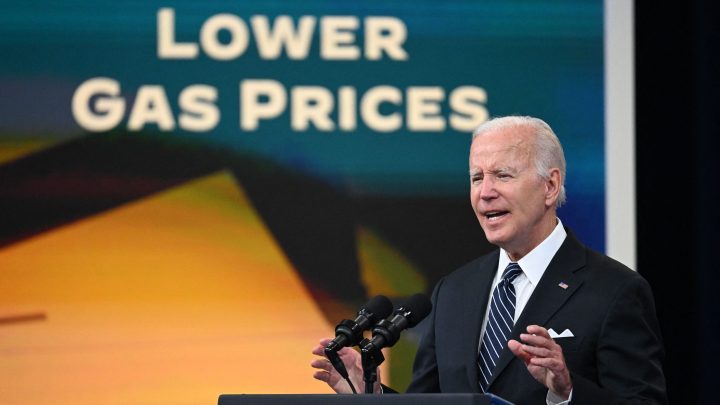
How political ads try to shape the way we feel about the economy
How political ads try to shape the way we feel about the economy

Political campaigns and advocacy groups are expected to spend anywhere from $10 billion to $17 billion on ads in this year’s election cycle, and a great many of them will be focused on the economy. This was true for the primary campaigns, both national and local.
How a campaign talks about the economy in an ad can depend on a variety of factors, including whether the candidate is an incumbent and how the economy is performing leading up to the election.
“That’s where the campaign matters,” said Marc Hetherington, a political science professor at the University of North Carolina at Chapel Hill. “Can you, as a campaign, affect the perceptions that people have of conditions? Especially if those conditions are not on your side?”
One strategy to shape perceptions of the economy is to adjust the timeline you’re talking about.
“If you’re comparing whether or not the economy is getting better by the academic numbers over the last three to six months,” said Heath Garrett, a partner with Republican-leaning firm Strategic Partners and Media, “then you can make the argument that the economy is getting better.”
But, Garrett said, if you’re an average American comparing this economy to, for example, the pre-pandemic economy, “then no matter what the academic, economic numbers are telling you, you’re not feeling better. Because it’s an emotive experience when you go to the grocery store and all of a sudden you feel like your bill is up by 50%, at some places doubled. It just has a feeling about it.”
Garrett said those feelings are what resonate with voters and can provide the basis for ads that resonate without being dishonest, especially when a candidate is running against an incumbent.
“We intellectually understand that … the numbers are getting better,” he said. But people “don’t feel like their individual situation is getting better or the costs are coming down. They’re not finding it more affordable to buy a home or to fill up that tank of gas.”
An incumbent may want to shift focus to the overall positive economic trends, but “you can’t just sit on a soapbox and scream out the accomplishments you’ve had in the two, four, six years of your term,” said Tess McRae, vice president of communications for the Parkside Group, which works with local and national campaigns.
“You need to be able to hold space for the real kind of feelings of frustration, feelings of cynicism,” she said, “and acknowledge that you’re going to continue to do that work. And lifting up specific examples of what that work in the future is going to look like is very key.”
Coaching candidates on how to talk about the economy is often one of the earliest conversations McRae said her team has with campaigns. This cycle, she expects to see candidates — especially incumbents — focus less on the big-picture economy. Instead, she said, successful messaging for incumbents will highlight smaller ways people’s lives have improved.
“What were we paying at the pump a year and a half ago? What are we paying now?” McRae said. “What legislative initiatives have you prioritized as a candidate that are going to benefit and hopefully reduce those costs that voters are feeling? And then, how can we pivot looking forward so that voters don’t feel like you’re essentially wiping your hands of it and saying, ‘I did all we can do. We’re done. We achieved it.’”
The key to talking about the economy for any candidate, Garrett said, is to keep the message focused on local and individual issues.
“Have real voters tell the story for you, the candidate, from their perspective, rather than it always be about you, the candidate,” he suggested. “And when you do that, it’s not you, the candidate, creating the economic fear or the economic concern. It’s real people in that state or in that district who are doing so. That’s, to me, a smarter way and a more intellectually honest way to define issues.”
Because what voters believe about the economy, Garrett added, depends not only on their own experience, but what they see others in the community experiencing as well.
There’s a lot happening in the world. Through it all, Marketplace is here for you.
You rely on Marketplace to break down the world’s events and tell you how it affects you in a fact-based, approachable way. We rely on your financial support to keep making that possible.
Your donation today powers the independent journalism that you rely on. For just $5/month, you can help sustain Marketplace so we can keep reporting on the things that matter to you.


















